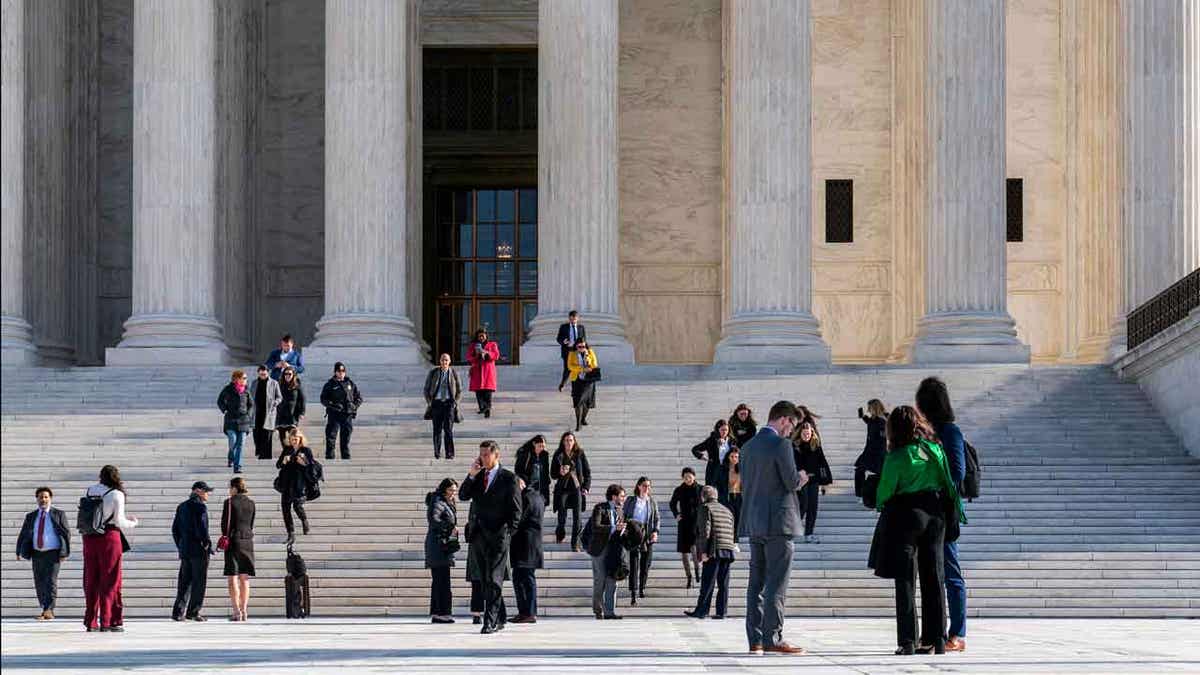Fox News Flash top headlines for March 21
Fox News Flash top headlines are here. Check out what's clicking on Foxnews.com.
The Supreme Court ruled unanimously Tuesday for a deaf student who sued his public school system for providing an inadequate education. The case is significant for other disabled students who allege they were failed by school officials.
The case the justices ruled in involves Miguel Luna Perez, who attended public school in Sturgis, Michigan. Perez’s lawyers told the court that for 12 years the school system neglected the boy and lied to his parents about the progress he was making, permanently stunting his ability to communicate.
The justices ruled that after Perez and his family settled a complaint against the school system — with officials agreeing to pay for additional schooling and sign language instruction — they could pursue money damages under a different federal law. Justice Neil Gorsuch wrote in a eight-page opinion for the court that the case "holds consequences not just for Mr. Perez but for a great many children with disabilities and their parents."
It remains difficult for Perez, who emigrated to the United States from Mexico at age 9, to make himself understood. Perez’s lawyers say the school system failed him by providing an aide who was not trained to work with deaf students, did not know sign language and in later years left him alone for hours at a time. After over a decade, Perez did not know any formal sign language and communicated through invented signs that anyone unfamiliar with his unique signing did not understand, his lawyers have said.

The Supreme Court on March 21, 2023, ruled unanimously in favor of Miguel Luna Perez, a deaf student who sued his public school system for providing an inadequate education. (AP Photo/J. Scott Applewhite)
Meanwhile, the school awarded him inflated grades and his parents believed he was on track to earn his high school diploma. Just before graduation, however, his family was told he qualified only for a "certificate of completion."
HIGH COURT BOLSTERS RIGHTS OF LEARNING-DISABLED STUDENTS
His family responded by pursuing claims under two laws: the broad Americans with Disabilities Act, which prohibits discrimination against disabled people, and the Individuals with Disabilities Education Act. The latter guarantees children with disabilities a free public education that is tailored to their specific needs.
Perez’s family and the school district ultimately settled the IDEA claims. The district agreed to pay for extra schooling and sign language instruction for Perez and his family, among other things, and he graduated from the Michigan School for the deaf in 2020. After the settlement, the family went to federal court and, under the ADA, sought monetary damages, which are not available under the IDEA.
CLICK HERE TO GET THE FOX NEWS APP
Lower courts said Perez was barred from pursuing his ADA claims because of language in the IDEA, but the Supreme Court disagreed. Gorsuch wrote: "We clarify that nothing" in the IDEA "bars his way."
The Biden administration had also urged the court to side with Perez. The case is Perez v. Sturgis Public Schools, 21-887.














































